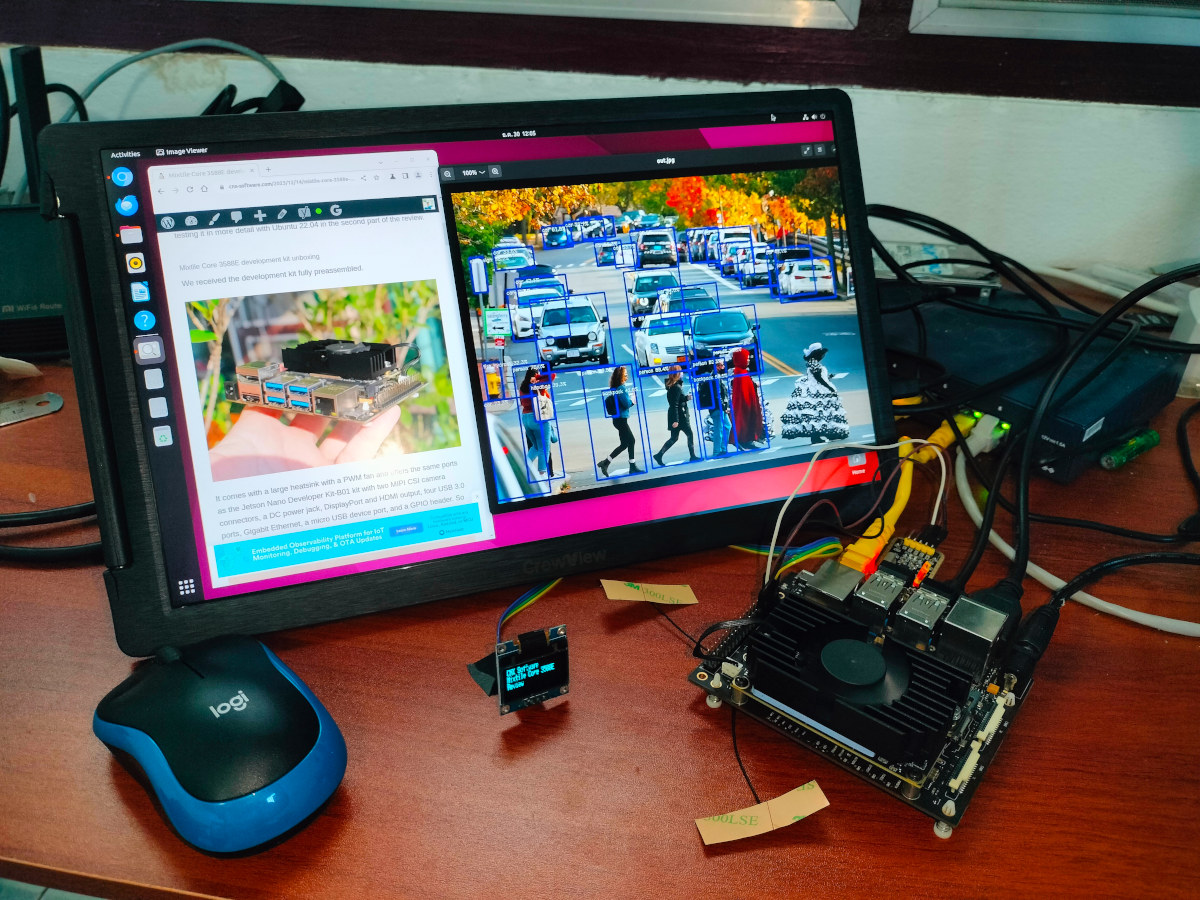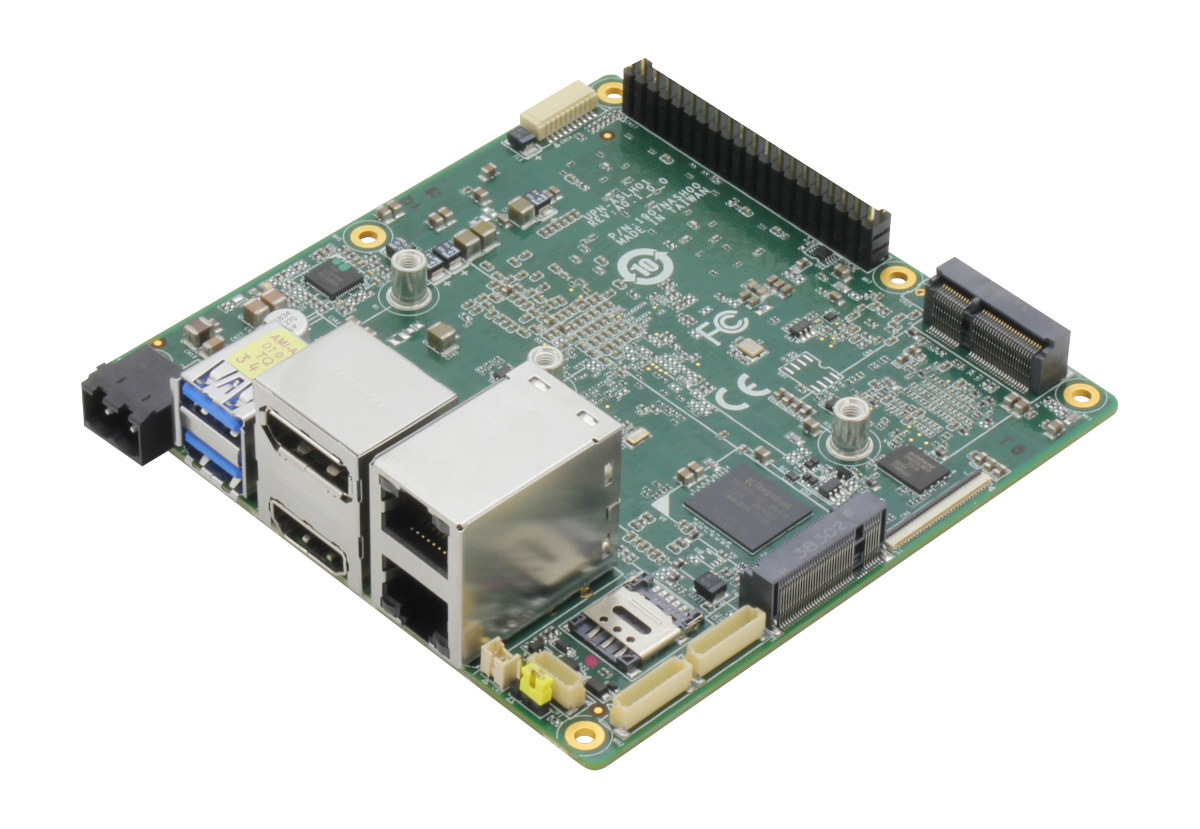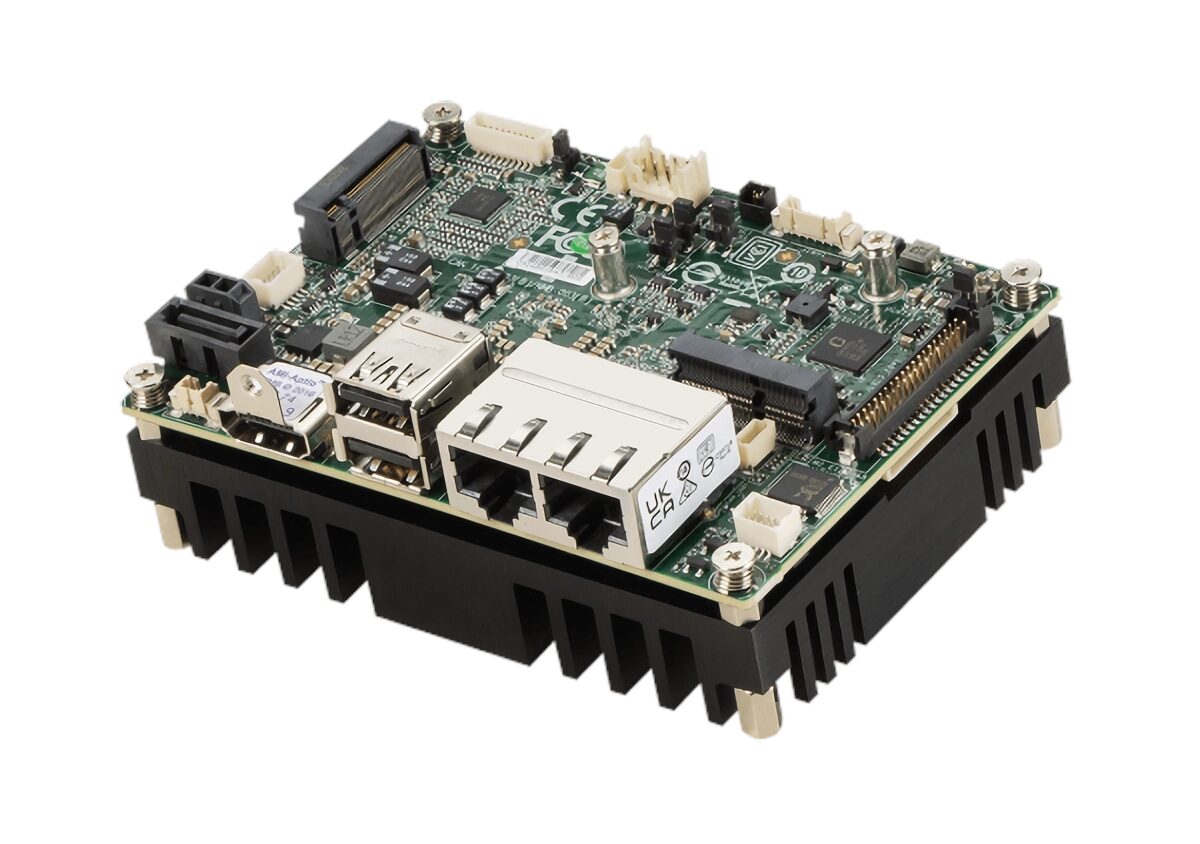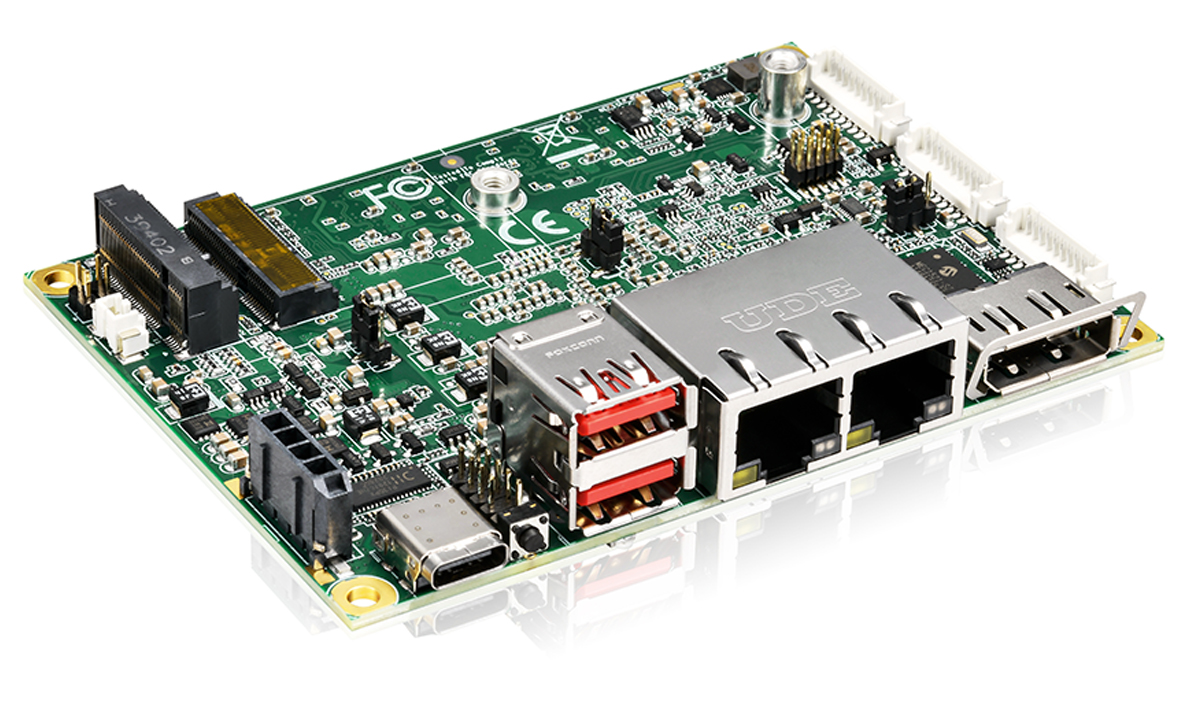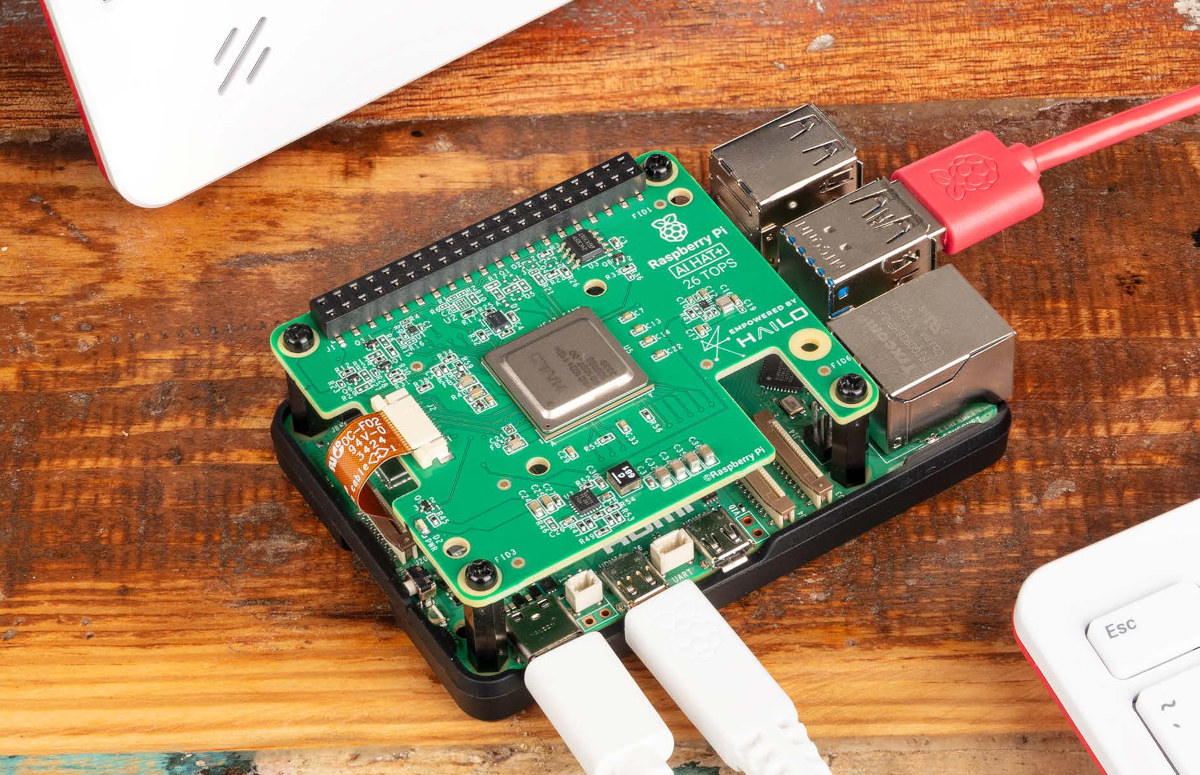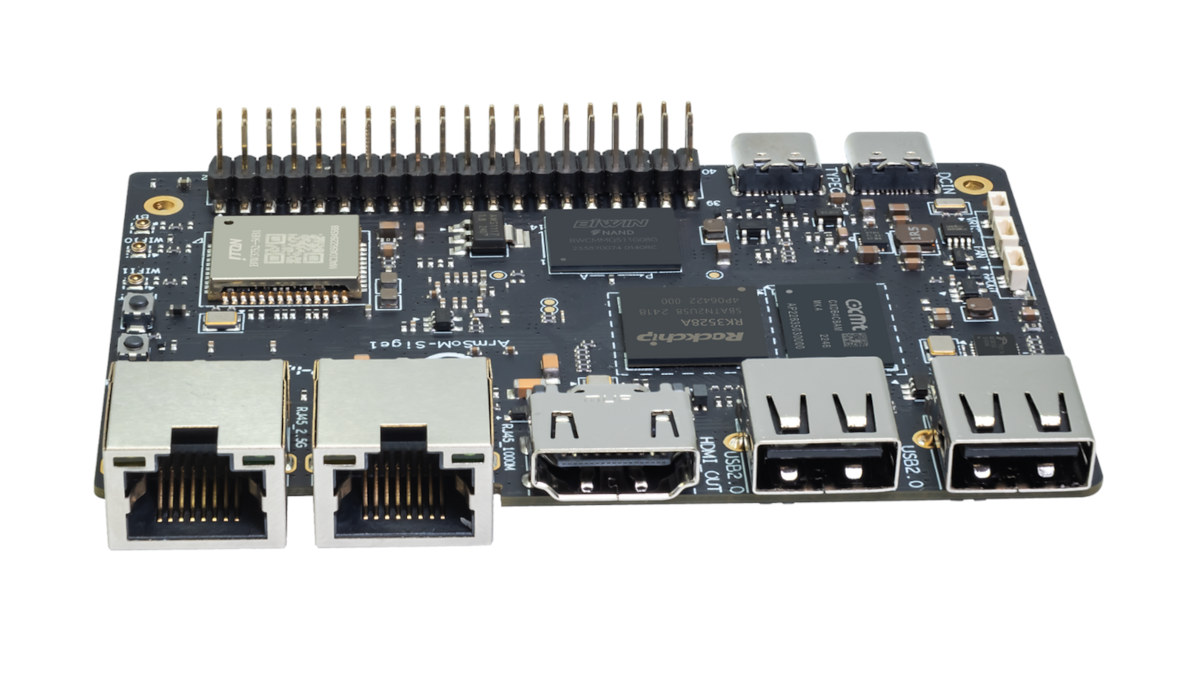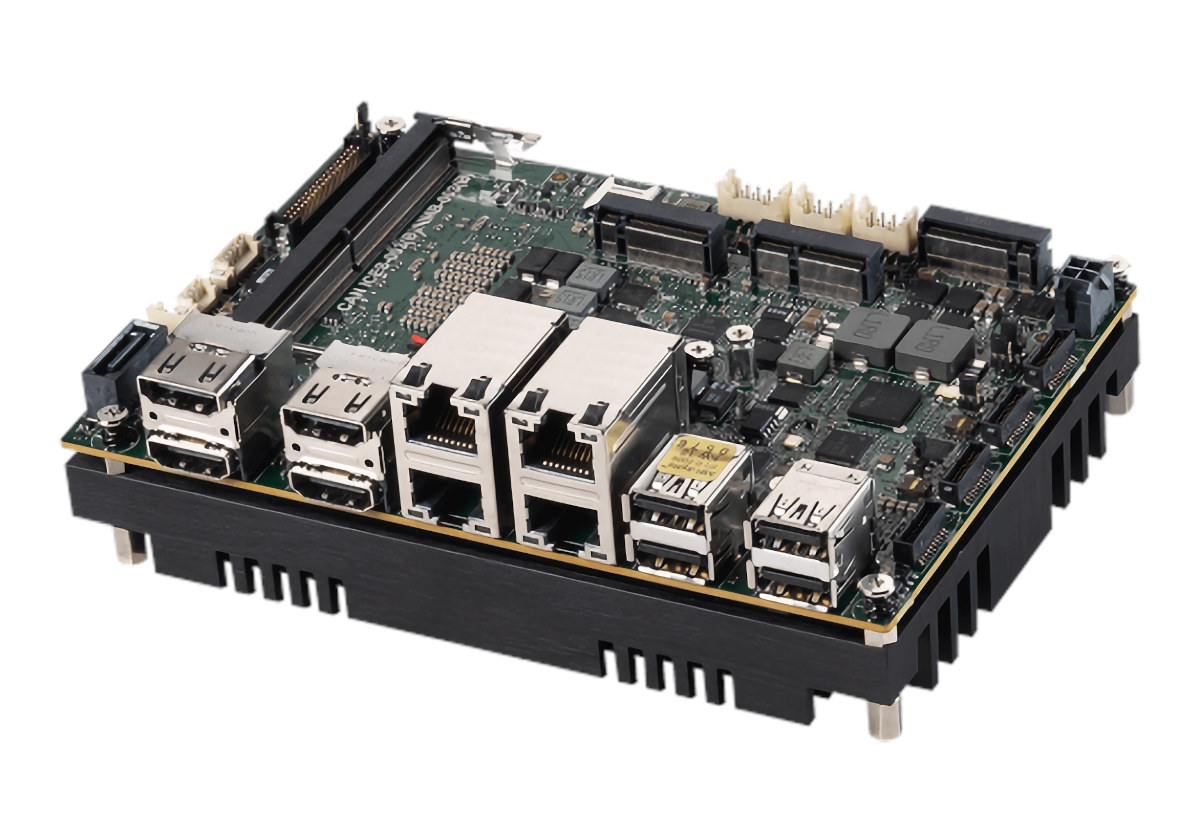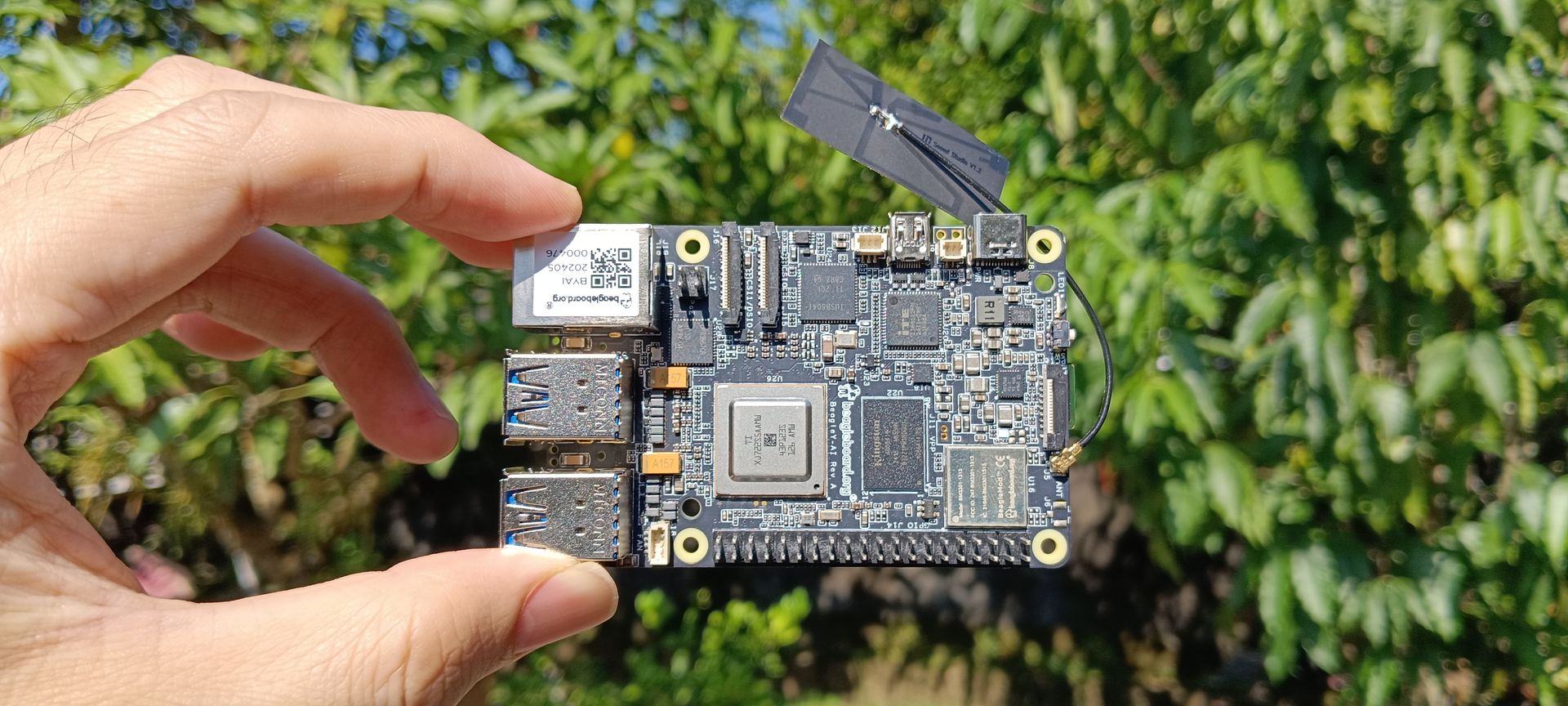Day 4 of Giveaway Week 2024 will be for a development kit comprised of the Mixtile Core 3588E SoM based on Rockchip RK3588 octa-core Cortex-A76/A55 SoC and a Leetop A206 carrier board compatible with NVIDIA Jetson SO-DIMM modules. This development kit is mostly useful to evaluate the Mixtile Core 3588E system-on-module, but it can be used just like any Rockchip RK3588 SBC with the company providing a Ubuntu 22.04 Desktop image for the board. Since it relies on the same edge connector as the NVIDIA Jetson TX2 NX module, the Core 3588E module can also be connected to other compatible carrier boards. I reviewed the Mixtile Core 3588E development kit last December running Ubuntu 22.04. At the time, I found the Mixtile Core 3588E system-on-module performs well with the pre-loaded Ubuntu 22.04 image with a similar performance as on other Rockchip RK3588 hardware platforms. 3D graphics acceleration was working with […]
UP Squared Pro 710H SBC combines Alder Lake-N CPU with Hailo-8 AI accelerator for the machine vision market
AAEON UP Squared Pro 710H is a 4×4-inch SBC and developer board designed for machine vision applications with an Intel Processor N97 or Core i3-N305 Alder Lake-N CPU and a 26 TOPS Hailo-8 Edge AI processor. The single board computer supports up to two MIPI CSI cameras via a 61-pin connector and offers expansion capabilities through a 40-pin Raspberry Pi-compatible header and three M.2 sockets for 5G, Wi-Fi, and NVMe storage support. While it’s only designed to operate in the 0 to 60°C temperature range, it does have industrial features such as 12V to 36V DC input and two RS-232/422/485 connectors. UP Squared Pro 710H specifications: Alder Lake N-series SoC (one or the other) Intel Processor N97 quad-core processor up to 3.6 GHz with 6MB cache, 24EU Intel UHD Graphics Gen 12 @ 1.2 GHz; TDP: 12W Intel Core i3-N305 octa-core processor up to 3.8 GHz with 6MB cache, 32EU Intel […]
MSI MS-CF16 fanless Alder Lake-N/Amston Lake Pico-ITX single board computer features up to 16GB LPDDR5 RAM
MSI MS-CF16 is a fanless single board computer (SBC) in the Pico-ITX form factor powered by low-power Intel Alder Lake-N or Amston Lake series processors. It features up to 16GB LPDDR5 RAM, offers dual independent display support via HDMI and LDVS/eDP connectors, and integrates other peripherals such as 2.5GbE and 1GbE LAN ports, multiple USB 3.2 and USB 3.0 ports, and two M.2 (B-Key and E-Key) sockets. The MS-CF16 is a smaller and more power-efficient alternative to the MS-CF17 3.5-inch SBC which we covered previously. It is perfect for industrial and embedded applications such as industrial automation, edge computing, medical devices, outdoor signage, and general computing in demanding conditions. It’s far from the first Alder Lake-N or Amston Lake Pico-ITX single board computer we’ve written about, and competing solutions include Jetway’s JPIC-ADN1, AAEON’s PICO-ASL4, DFI’s RPP051, and Kontron 2.5”-SBC-AML/ADN Alder Lake-N/Amston Lake Pico-ITX SBC covered by Sayantan earlier today. MSI […]
Kontron 2.5”-SBC-AML/ADN Pico-ITX SBC features Alder Lake-N or Amston Lake SoC up to Intel Atom X7835RE
Kontron has launched its new Amston Lake Pico-ITX SBC, the 2.5”-SBC-AML/ADN series, optimized for low-power, real-time computing in industrial automation, smart cities, energy, retail, and healthcare applications. This compact SBC series supports Intel’s energy-efficient processors, including the Intel Atom x7000E Series, Intel Core i3 N-Series, Intel N-Series (Alder Lake-N), and the Intel Atom x7000RE Series (Amston Lake). With Intel UHD Graphics (Gen12) featuring up to 32 execution units, these Amston Lake Pico-ITX SBCs enhance graphics processing and support concurrent AI inference. Powered by Intel Deep Learning Boost, they achieve faster AI inference, which is ideal for efficient edge computing, while meeting the stringent demands of real-time, low-latency applications. Previously, we covered several Pico-ITX SBCs, including the AAEON PICO-ASL4, Jetway JPIC-ADN1, AAEON PICO-IMX8PL, and AAEON RICO-MX8P, among others. Feel free to explore these reviews if you’re interested in similar SBCs. Kontron 2.5”-SBC-AML/ADN specifications: CPU Standard Intel Atom x7211RE dual-core processor up […]
Raspberry Pi AI HAT+ features Hailo-8L or Hailo-8 AI accelerator with up to 26 TOPS of performance
The Raspberry Pi AI HAT+ is a PCIe expansion board for the Raspberry Pi 5 with either a 13 TOPS Hailo-8L or 26 TOPS Hailo-8 AI accelerator. You may remember the Raspberry Pi AI Kit was introduced last June with an official M.2 Key M HAT+ and a 13 TOPS Hailo-8L M.2 AI accelerator module, The new Raspberry Pi AI HAT+ is quite similar except the chip is soldered on the expansion board and offered with either Hailo-8L or the more powerful Hailo-8 variant. Raspberry Pi AI HAT+ specifications: Supported SBC – Raspberry Pi 5 AI accelerator Hailo-8L AI accelerator with up to 13 TOPS of performance Hailo-8 AI accelerator with up to 26 TOPS of performance Host Interface – PCIe Gen3 interface 16mm stacking GPIO header PCIe FPC cable Spacers and screws enabling fitting on Raspberry Pi 5 with Raspberry Pi Active Cooler Dimensions – 65 x 56.5 mm […]
Banana Pi BPI-M1S RK3528 SBC features HDMI 2.0, 2.5GbE, WiFi 6, and more
The Banana Pi BPI-M1S, also known as the ArmSoM-Sige1, is a low-profile single board computer (SBC) based on the Rockchip RK3528 quad-core Cortex-A53 SoC initially designed for entry-level 4K TV boxes. Contrary to the two other RK3528(A) SBCs we’ve covered, namely the Radxa Rock E20C and FriendlyELEC NanoPi Zero2 focusing on low-cost and small footprint for headless networked applications, the Banana Pi BPI-M1S integrates more features such as HDMI 2.0 for 4K video output and audio, 2.5GbE and WiFi 6 networking, and a 40-pin GPIO header for expansion. Banana Pi BPI-M1S specifications: SoC – Rockchip RK3528 CPU – Quad-core Arm Cortex-A53 @ 2.0 GHz GPU – Arm Mali-G450 GPU with support for OpenGL ES1.1, ES2.0, and OpenVG 1.1 APIs VPU H.264, H.265, and AVS2 decoder up to 4Kp60 H.264 and H.265 encoder up to 1080p60 Memory – 4GB LPDDR4x Storage 32GB eMMC flash (by default) MicroSD card slot Video Output – […]
MSI MS-CF17 is a 3.5-inch fanless single board computer with Intel Raptor Lake-P SoC
The MSI MS-CF17 is a fanless 3.5-inch single board computer powered by the Intel 13th Gen Raptor Lake-P series with options for embedded and industrial SKUs. It comes with up to 32GB of DDR5 SODIMM memory and features an M.2 M key (PCIe Gen4) socket and a SATA III storage slot. It also supports four 2.5GbE ports, four internal COM ports, eight USB interfaces, and M.2 Key-B and Key-E sockets for wireless expansion. It supports four independent displays via four HDMI 2.0 ports and an eDP/LDVS display interface. Potential applications for the fanless single board computer include industrial automation, digital signage, edge computing, transportation, and imaging systems MSI MS-CF17 specifications: SoC – Intel 13th Gen Raptor Lake-P Embedded/Industrial SKU Series; P-core: 4.3GHz ~ 4.9GHz; E-core: 3.2GHz ~ 3.7GHz; Intel Iris Xe Graphics (Core i5/i7) or Intel UHD Graphics (Core i3) Core i7-1365UE / i5-1345UE / i5-1335UE / i3-1315UE / U300E, […]
BeagleY-AI SBC review with Debian 12, TensorFlow Lite, other AI demos
Today I’ll be reviewing the BeagleY-AI open-source single-board computer (SBC) developed by BeagleBoard.org for artificial intelligence applications. It is powered by a Texas Instruments AM67A quad-core Cortex-A53 processor running at 1.4 GHz along with an ARM Cortex-R5F processor running at 800 MHz for handling general tasks and low-latency I/O operations. The SoC is also equipped with two C7x DSP units and a Matrix Multiply Accelerator (MMA) to enhance AI performance and accelerate deep learning tasks. Each C7x DSP delivers 2 TOPS, offering a total of up to 4 TOPS. Additionally, it includes an Imagination BXS-4-64 graphics accelerator that provides 50 GFlops of performance for multimedia tasks such as video encoding and decoding. For more information, refer to our previous article on CNX Software or visit the manufacturer’s website. BeagleY-AI unboxing The BeagleY-AI board was shipped from India in a glossy-coated, printed corrugated cardboard box. Inside, the board is protected by […]


